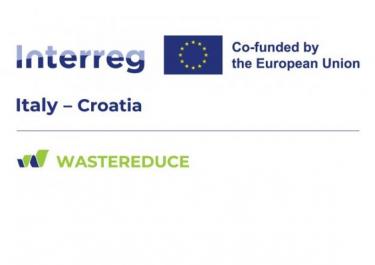- Home
- Department
- Research
- Teaching
- Post Graduate Studies
- Services and Equipment
- Knowledge Transfer
WASTEREDUCE (2024-2026)

Wastereduce is a two-and-a-half year Interreg Italy-Croatia project involving 8 partners including research institutes (Institute for Agriculture and Tourism based in Porec, lead partner of the consortium, and the Department of Life Sciences of the University of Trieste), Local Administrations (Istrian Region), Agencies for the protection and management of the environment and natural resources (Regional Agency for Environmental Protection of Veneto and the Managing Body of Nature Reserves of the Istrian Region "Natura Histrica"), Non-governmental organizations (Association for Nature, Environment and Sustainable Development "Sunce" based in Croatia) and service companies (ETRA SpA - Benefit Company based in Bassano del Grappa and Etifor - Valuing Nature spin off of the University of Padua) with the aim of improving waste management in protected areas and Natura 2000 Network sites through the implementation of joint actions to combat the phenomenon of waste abandonment with innovative methods of detection and intervention.
The project, funded with more than 1.6 million euros under the 6th European Territorial Cooperation Program Interreg 2021-2027, was created in response to recent alarming data provided by the European Community that predicts, in a business-as-usual scenario, an almost three-fold increase by 2040 in the amount of plastic waste entering aquatic ecosystems, from the current 9-14 million tons per year (data of 2016) to a estimated amount of 23-37 million tons per year. An estimated 80 percent of this marine litter is supposed to come from land: waste that enters the marine environment from land-based sources (e.g., inadequately managed waste in landfills, litter dumping on beaches and coastal areas; river runoff; coastal tourism) but also directly disposed of at sea (e.g., through illegal dumping or accidentally released into the sea by ships). These materials, especially plastics, are responsible for serious economic damage, impacting coastal communities, tourism, shipping, and fisheries, but also responsible for damage caused to human health and biodiversity, impacting public health and resources such as drinking water.
The approach that the working group will develop aims to minimize the pressures exerted by human activities on protected areas and Natura 2000 sites by proposing solutions to reduce the dispersion of waste into the environment and, by developing transboundary cooperation mechanisms to monitor and identify critical areas where the accumulation of waste requires a timely management effort. Complementarily, specific environmental psychology studies will be undertaken to understand how to promote behavior change that contributes to anthropogenic impacts on protected natural areas.
For more information, you can email wastereduce@units.it
PROJECT DURATION: 1/2/2024 - 7/31/2026
TOTAL BUDGET: 1,657,742.23 EUR
Useful Links:
Last update: 02-25-2025 - 17:12


